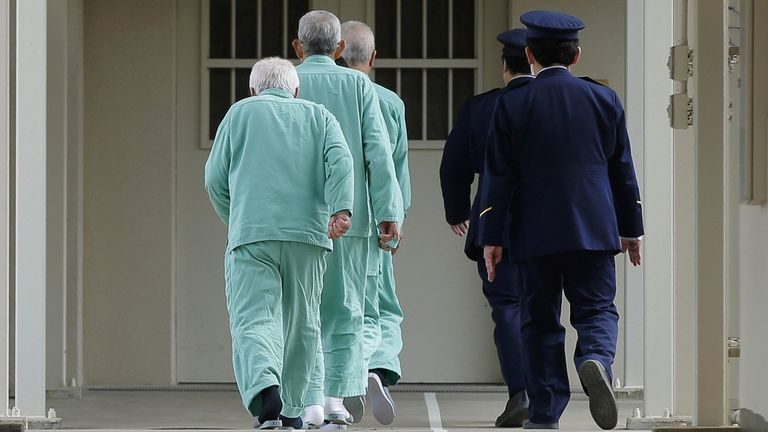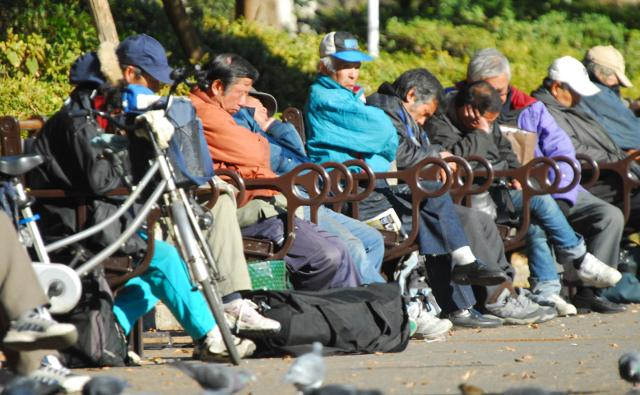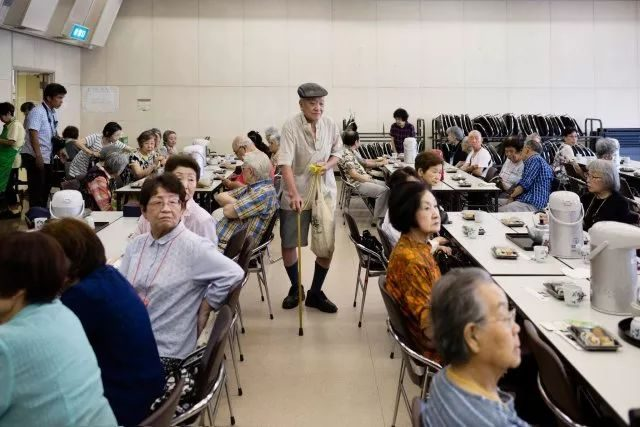
For some time, Japan has suffered a series of vicious injuries to the elderly. Relevant surveys show that the crime rate of the elderly in Japan is on the rise. In 1989, the elderly accounted for 2.1 per cent of crimes committed; In 2019, older people accounted for 22 percent of crimes committed, a 10-fold increase. In the context of the overall decline in the crime rate of Japanese society, the crime rate of the elderly has been rising. This has become one of the serious social problems in Japan.
To explore the crime problem of the elderly in Japan, we cannot get around the problem of aging in Japan, which is already a prominent crux of Japanese society. In September 2023, the Japanese Ministry of Internal Affairs and Communications released a population projections report showing that the proportion of people over 80 years old exceeded 10% for the first time, while the proportion of people over 65 years old accounted for 29.1% of the total population. Aging is an irreversible social problem in Japan. Since the 1970s, in order to solve the problem of aging, the Japanese government has adopted a variety of means to encourage fertility, but the effect is little, and the policy space is relatively limited. In order to solve the pension problem, the Japanese government began to raise the retirement age.

The apparent reason for the high crime rate of the elderly in Japan is the social security problems such as the reduction of pensions and rising prices due to the low number of children of the elderly in Japan. The decline in social participation after retirement of the elderly in Japan, coupled with the simplification of family structure caused by the reduction of family size, the phenomenon of living alone among the elderly aged 65 and above is relatively serious. The elderly live alone for a long time, the lack of social relations brings loneliness, dissatisfaction and pressure, and the last part of them may resort to the "stimulating" behavior of crime to relieve it, or to solve the problems of insufficient pension, poor life, loneliness and lack of dignity. In recent years, due to the sharp rise in food and energy prices, the Japanese people's lives have increased. In 2022, Japan's real gross domestic product (GDP) edged up 1.1%, significantly slower than the previous year. Under the background of an aging society, the number of poor elderly people is on the rise, and from the outlook of the job market, the employment situation of the elderly is deteriorating, and their income is gradually decreasing. Forced by the need to solve the basic needs of life and make up for economic difficulties, some poor elderly people take measures such as shoplifting, and even some poor elderly people intentionally steal in order to be sentenced, so as to achieve medical, housing, food "comprehensive" security and low cost of living "prison pension".
The deep reason for the high crime rate of the elderly in Japan is the psychological gap of "relative poverty" brought by Japan's post-war economic society from prosperity to stagnation. The "2025 problem" is the looming problem of Japan's aging society, which mainly refers to those born during Japan's first "baby boom" between 1947 and 1949 after the end of World War II, known in Japan as the "mass generation". They entered the workforce as adults just in time for Japan's economic boom that began in the mid-1960s. By 2025, the "lumped generation" will be 75 years old, which is likely to bring higher care costs, medical costs, labor shortages and social security costs.
"Relative poverty" is a common problem that this generation of seniors may face. Most of Japan's older people were born after World War II and formed their values during Japan's rapid economic growth. They flocked to the developed areas of Japan from all over the world, promoted the construction of urbanization in Japan, and devoted the most brilliant and energetic years of their lives to the country, becoming the generation that promoted Japan's economic take-off. Driven by lifetime employment, universal insurance and universal pensions, individuals' wealth has grown enormously, giving them great expectations for the future and high expectations for life. However, as Japan's economic bubble burst, GDP growth continued to decline, Japan's stock market and property market collapsed one after another, a large number of "group generation" hard-earned wealth suddenly evaporated, some people even began to bear a heavy debt burden, old life is not what they imagined when they were young. The vicious circle of relative poverty is also exacerbated by growing socio-economic disparities, rising unemployment and falling personal incomes.

The economic and social development of Japan has changed from prosperity to stagnation, and the personal wealth of the Japanese people has changed from rich to poor. The poverty caused by both social and personal reasons and the accompanying gap have made many elderly people increasingly uneasy, and also pushed up the probability of their crimes to some extent. Japan's economic situation may fall further, with the International Monetary Fund forecasting in October that Japan's nominal GDP will fall from third to fourth in the world in 2023. The decline in Japan's GDP will also pose a more severe test for Japan's aging policy.
From the perspective of the Japanese government's policy making, whether the Kishida Cabinet that accelerates the "right-leaning" can fundamentally reverse the "Kishida line" of "heavy arms and light people's livelihood" and effectively promote economic development and improve social security to save the Cabinet's support rate that is about to fall into the "waters of resignation" may be the key to fundamentally curb or slow down the criminal behavior of the elderly in Japan in the future. It is also the only way to promote Japan's economic and social stagnation to prosperity.

Since 2022, the Fed has cumulatively reduced its balance sheet by $2.4 trillion through quantitative tightening (QT) policies, leading to a near depletion of liquidity in the financial system.
Since 2022, the Fed has cumulatively reduced its balance sh…
On December 11 local time, the White House once again spoke…
Fiji recently launched its first green finance classificati…
Recently, the European Commission fined Musk's X platform (…
At the end of 2025, the situation in the Caribbean suddenly…
The U.S. AI industry in 2025 is witnessing a feverish feast…